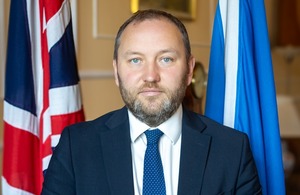Secretary of State for Scotland reacts to LMS for September 2024
Ian Murray says UK Government is prioritising making work pay, tackling poverty and growing the economy despite inheriting challenging finances

Scottish Secretary Ian Murray has responded to the latest labour market stats, published today here.
He said:
Fixing the country’s foundations is our priority to deliver change, tackle poverty and grow the economy. That’s a massive challenge, given the in-year £22billion black hole in finances we inherited from the previous government, but we are making strides forward.
We’re helping hard-working adults into fairly-paid jobs and giving them the means the stay secure in those jobs. We’re making the national minimum wage a real living wage, prioritising Job Centre reform and making exploitative zero hour contracts a thing of the past. Boosting opportunity is key too – and we’ll underline that next month as we showcase the UK’s excellence to the world at the international investment summit.
Background:
-
More information on the Plan to Get Britain Working is available here: Back to Work Plan will help drive economic growth in every region - GOV.UK (www.gov.uk)
-
A new Labour Market Advisory Board has been announced, chaired by Professor Paul Gregg. It is a new group of external experts who will provide labour market insight and advice to drive change throughout the system.
-
Estimates for May to July 2024 indicate that over the quarter the unemployment rate decreased, while the employment rate increased and the inactivity rate decreased.
-
The unemployment rate in Scotland was 4.2 per cent, down 0.5 percentage points over the quarter. Scotland’s unemployment rate was slightly above the UK rate of 4.1 per cent.
-
The employment rate in Scotland was 74.2 per cent, up 1.2 percentage points over the quarter. Scotland’s employment rate was below the UK rate of 74.8 per cent.
-
The economic inactivity rate (the proportion of people aged 16 to 64 who were not working and not seeking or available to work) in Scotland was 22.3 per cent, down 0.8 percentage points over the quarter. Scotland’s economic inactivity rate was above the UK rate of 21.9 per cent.